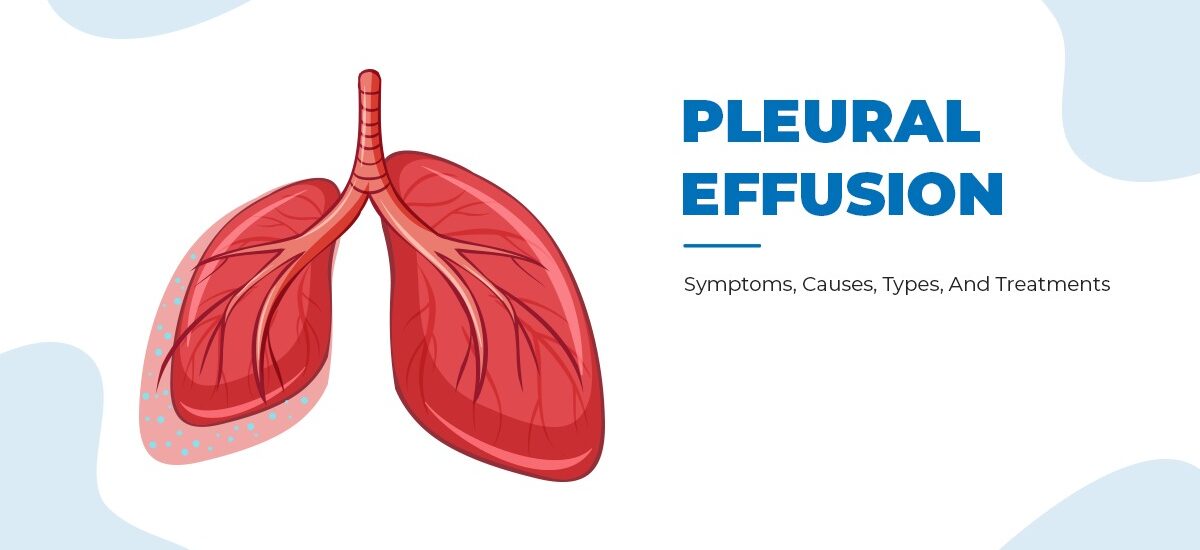Pleural effusion is a medical condition in which fluid accumulates in the pleural cavity, the space between the lungs and chest wall. It can be caused by many different diseases or injuries, ranging from pneumonia to cancer, and it can range from mild to severe. In some cases, it can even be life-threatening. In this blog post, we’ll discuss symptoms of pleural effusion, possible causes for the condition, and potential treatments. We’ll also provide valuable information about how to recognize this condition and what steps you should take if you think you may have pleural effusion. Read on to learn more!
What is the main cause of Pleural Effusion?
The main cause of the pleural effusion is fluid buildup in the space between the layers of tissue that line the lungs and chest cavity. The fluid can be caused by a variety of things, including:
- Infection
- Heart failure
- Cancer
- Liver disease
- Kidney disease
Pleural effusion can also be caused by certain medications or treatments, such as:
- Chemotherapy
- Radiation therapy
How serious is a Pleural Effusion?
A pleural effusion is a buildup of fluid in the space between the layers of tissue that line the lungs and chest cavity. The fluid can put pressure on the lungs and make it difficult to breathe. A pleural effusion can be caused by a number of different conditions, including pneumonia, congestive heart failure, and cancer. Treatment for a pleural effusion depends on the underlying cause. In some cases, the fluid may need to be drained from the chest cavity with a needle or tube.
What are the 2 types of Pleural Effusion?
Pleural effusion is the accumulation of fluid between the layers of tissue that line the lungs and chest cavity. This can cause the lungs to collapse and make it difficult to breathe.
There are two types of pleural effusion: Transudative and Exudative.
Transudative pleural effusion is caused by a decrease in the amount of protein in the fluid, which makes it more watery. This type of effusion is often seen in people with heart failure or cirrhosis. Exudative pleural effusion is caused by an increase in the amount of inflammation-causing chemicals in the fluid. This type of effusion is often seen in people with pneumonia or lung cancer.
Can Pleural Effusion be cured?
Pleural effusion is a condition in which fluid accumulates in the space between the lungs and the chest wall. This can cause the lungs to collapse and make it difficult to breathe. There are many possible causes of pleural effusion, including lung disease, heart failure, and cancer. Treatment depends on the underlying cause. In some cases, pleural effusion can be cured with the treatment of the underlying condition. However, if the effusion is caused by cancer or other irreversible damage to the lungs, it may not be possible to completely cure the condition.
Our role:
California Pulmonary Associates is a medical practice that specializes in the diagnosis and treatment of pleural effusion and other respiratory conditions.
There are several ways that California Pulmonary Associates can help you with pleural effusion, including:
Diagnosis: California Pulmonary Associates can help diagnose pleural effusion through a variety of tests, including chest X-rays, computed tomography (CT) scans, and ultrasound.
Treatment: Once the cause of the pleural effusion is determined, California Pulmonary Associates can recommend treatment options, which may include medications, procedures to remove the excess fluid, or surgery.
Follow-up care: After treatment, California Pulmonary Associates can provide follow-up care to ensure that the pleural effusion has resolved and to monitor for any recurrence of the condition.
If you are experiencing symptoms of pleural effusion, such as difficulty breathing, chest pain, or coughing, it is important to speak with a healthcare provider as soon as possible. California Pulmonary Associates can provide the necessary medical care and support to help you manage your condition and improve your quality of life.





